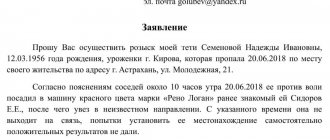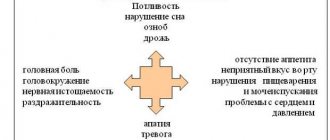1. Infliction of physical or mental suffering through systematic beatings or other violent actions, if this does not entail the consequences specified in Articles 111 and 112 of this Code, is punishable by restriction of freedom for a term of up to three years, or forced labor for a term of up to three years, or imprisonment for the same period.
2. The same act committed: a) in relation to two or more persons; b) in relation to a person or his relatives in connection with the performance of official activities by this person or the performance of public duty; c) in relation to a woman who is known to the perpetrator to be pregnant; d) in relation to a person who is known to be a minor or a person who is known to be in a helpless state or in financial or other dependence on the offender, as well as a person who has been kidnapped or taken as a hostage; e) using torture; f) by a group of persons, a group of persons by prior conspiracy or an organized group; g) for hire; h) for reasons of political, ideological, racial, national or religious hatred or enmity, or for reasons of hatred or enmity towards any social group - is punishable by imprisonment for a term of three to seven years.
Note. In this article and other articles of this Code, torture is understood as the infliction of physical or mental suffering in order to force a person to testify or take other actions contrary to the will of a person, as well as for the purpose of punishment or other purposes.
Qualifying characteristics and corpus delicti
From the point of view of law, the criminal legal characteristics of torture include the corpus delicti of the crime and its qualifying features. The corpus delicti under Article 117 of the Criminal Code of the Russian Federation arises in the presence of:
- object (the well-being of the victim);
- acts (torture is expressed in causing physical or mental suffering in the absence of consequences under Articles 11 and 112 of the Criminal Code of the Russian Federation);
- a sane subject (torturer over the age of 16).
Qualifying signs of torture under Article 117 of the Criminal Code of the Russian Federation:
- the object is inflicted physical or mental suffering, which is expressed in pain, humiliation and other negative sensations;
- suffering is caused by systematic beatings or other violent actions;
- the subject of the crime commits the act with intent and deliberately causes suffering to the victim;
- the actions of the perpetrator are violent and are carried out against the will of the victim;
- the act does not lead to the infliction of grave or moderate harm to the health of the victim.
How do beatings differ from torture?
As mentioned above, according to Part 1 of Art. 117 of the Criminal Code of the Russian Federation, torture is the infliction of physical or mental suffering on the victim through systematic beatings or other violent actions. At the same time, from Art. 117 is directly adjacent to Art. 116 “Beatings.” There is a feeling of confusion or “overlapping” of elements of a crime, which can be classified under either one or another article.
In fact, this is not so; from a legal point of view, the difference between torture and beating lies in several circumstances:
- during torture (Article 117), suffering is inflicted through systematic, that is, repeated (constant, regular) beatings, while in Art. 116 “Beatings” there is no sign of systematicity;
- beatings under Art. 116 are considered a criminal offense if they are committed out of hooligan motives, based on political, ideological, racial, national, religious hatred or enmity; in relation to torture, this motivation of the offender is indicated only in Part 2 of Art. 117, in part 1 it is absent, that is, it can be any;
- Torture can be expressed not only in beatings, but also in other violent actions that cause suffering to the victim.
Thus, torture is a more brutal crime against the person, and accordingly, the punishment for it is more severe than for “classic” beatings, which will be discussed in the next section.
Second commentary to Art. 117 of the Criminal Code of the Russian Federation
1. Objective side: causing physical or mental suffering. Methods of this infliction are systematic beatings or other violent actions.
The objective side of this crime covers only the infliction of minor harm to health.
2. Systematic beatings do not mean the number of blows inflicted on the victim, but the repetition of the tort: acts of violence (beatings) continue over a period of time and represent episodes that are independent in design and execution. The sign of systematicity in this crime reflects the significance of a specific life situation and does not have a strict legal meaning. Therefore, the annulment of legal consequences for an offense (assault) for any episode does not affect the assessment of the beatings as systematic.
3. Physical or mental suffering is caused to the victim by other violent acts. The legislator does not specify their content, since the physical or mental experiences of the victim are essential for the elements of torture. The external form of violence is not decisive. Violence can be applied not even to the object of torture (the victim), but to third parties. An example of such torture is violence in the presence of the victim against people close to him with the aim of causing him suffering.
4. The subjective side in the main structure of this crime is characterized by direct intent. The subject of torture is a person who has reached the age of sixteen.
5. Qualified types of torture are provided for in Part 2 of Art. 117 CC. The content of the signs provided for in paragraphs “a”, “b”, “c”, “f”, “g”, “h” of this article coincides with the content of the signs provided for in part 2 of article 105 (see 6 commentary to part second article 105 of the Criminal Code).
6. The use by the perpetrator of the financial or other dependence of the victim (clause “d” of Part 2 of Article 117 of the Criminal Code) in the context of torture is interpreted in a broad sense as a social connection between the perpetrator and the victim. These relations can be regulated by law and be in the nature of legal, official, administrative, and disciplinary relations. The legal (and other status) meaning of dependence has no criminal legal significance: the very nature of the relationship between the perpetrator and the victim is important. An essential feature of dependence is its subjective meaning: the essence of the relationship between the perpetrator and the victim must be understood by both.
7. The use of torture (clause “d”, part 2, article 117 of the Criminal Code) is a method of action. The concept of torture is given in paragraph 11 of the Convention against Torture and Other Cruel, Inhuman or Degrading Treatment or Punishment (ratified by the Presidium of the Supreme Soviet of the USSR on June 26, 1987). The inclusion of the specified qualifying feature in Article 117 of the Criminal Code has an international legal basis.
The concept of torture is formulated in a note to this article.
Criminal liability
Criminal Article 117 for torture provides for two types of punishments - for an “ordinary” crime and for a crime with aggravating circumstances.
In Art. 117 aggravating circumstances aggravating the guilt of the accused are given explicitly. Criminal liability for torture provides for the following penalties:
- for bullying a person, restriction of freedom for up to 3 years, or forced labor for up to 3 years, or imprisonment for up to 3 years (Part 1);
- for aggravated torture, imprisonment from 3 to 7 years (Part 2, details below).
For comparison: the maximum punishment for beatings under Art. 116 of the Criminal Code of the Russian Federation – imprisonment for up to 2 years.
Sergey Alekseev Lawyer, website author
Expert commentary
Which article punishes personal insult?
Previously (until 2012), article 130 of the Criminal Code of the Russian Federation was provided for insulting a person.
It belonged to the category of crimes of minor gravity, and therefore the perpetrator would not suffer any harsh punishment for the insult. It is difficult to prove the guilt of the accused in court. Direct witnesses or physical evidence in the form of audio or video recordings are needed. It is especially difficult to establish the intent of the perpetrator, to prove that he insulted the victim and did not express his opinion. Recently, there have been almost no criminal cases in which the fact of insult was independently examined. They were additional episodes to cases of threats to kill, causing bodily harm or harm to health. And gradually they completely disappeared.
Currently, there are only two articles of the Criminal Code of the Russian Federation for insulting a person; the victims in them are special subjects. Article 319 of the Criminal Code of the Russian Federation provides for criminal liability for insulting a government official, and Article 336 for insulting a military personnel.
Since the beginning of 2012, insulting a person is not a crime, but a misdemeanor provided for in Article 5.61 of the Code of Administrative Offenses of the Russian Federation. There are 3 parts:
- for individual insult to personality;
- for public;
- for failure to take measures to prevent public insult.
Where to apply
A report of torture should be filed with the police. The application can be submitted in writing in person, orally by telephone or online to the police department at the place where the crime was committed. It should be borne in mind that cases of crimes under Art. 117 of the Criminal Code of the Russian Federation relate to cases of public prosecution that can be initiated by the police if they become aware of the fact of torture not from the victim herself, but from other sources, for example, from eyewitnesses of the crime or from those who were not eyewitnesses, but learned about him from other persons.
Distinguishing from other types of child abuse
Sometimes they confuse torture and beatings (Article 116 of the Criminal Code). Indeed, the similarity is that both acts describe violent physical actions.
What makes torture different is that it is systematic – that is, when the victim is beaten at least twice in a short period of time, that is, for the victim it is something permanent. and how it is perceived also play a role
Other nuances are also important, due to which it would seem that even actions that are obviously suitable in composition for the article being described will not always be qualified as such.
Thus, one or even several episodes of repeated violence, both physical and moral, will not be considered torture, if the statute of limitations has already expired, or measures of at least administrative liability have already been applied to the guilty person and the resolutions prescribing such measures are still in force.
It will also not be considered bullying if the child was beaten, even if not just once, but over large time intervals (this point is controversial and there are specific cases where judges named a specific period - from several months to a year).
Aggravating circumstances
Aggravating circumstances under Part 2 of Art. 117 is considered torture:
- two or more persons;
- a person or his relatives in connection with the performance of official activities by this person or the performance of public duty;
- in relation to a pregnant woman;
- torture of a minor or child, a person known to the perpetrator to be in a helpless state, financially or otherwise dependent on the perpetrator, abducted, hostage;
- with the use of torture (they mean the infliction of physical or mental suffering in order to force the victim to testify or other actions contrary to the will of a person, for the purpose of punishment and for other purposes);
- a group of persons, a group of persons by prior conspiracy or an organized group;
- for hire;
- based on political, ideological, racial, national or religious hatred or enmity.
In addition, criminal law (Article 63 of the Criminal Code of the Russian Federation) specifies types of aggravating circumstances that aggravate the guilt of the accused of a crime, regardless of what article it is classified under. These include, in particular:
- relapse (repeated commission of a crime under the same article);
- involvement in the commission of a crime of persons who suffer from severe mental disorders or are in a state of intoxication, as well as persons under the age of criminal responsibility;
- revenge for the lawful actions of others.
These circumstances will also be taken into account by the court when sentencing the accused under Art. 117 of the Criminal Code of the Russian Federation.
Sergey Alekseev Lawyer, website author
Expert commentary
What is child torture and can you be punished for any spanking?
In fact, it is possible, but not for everyone. In order for a “slap” to be qualified as torture, it must, at a minimum, be used repeatedly, and also be qualified as beating. That is, a one-time action will not bother the guardianship specialists.
But if it is established that a “loving” parent uses beatings or moral humiliation as a method of education, this may well be qualified as Art. 117 of the Criminal Code – actually, torture.
The key word here is “systematically” , because strictly speaking, for an act to fall under the mentioned article, assault may not be necessary at all - this also includes the moral suffering caused.
As for the harm, the effect may not be physically expressed, but such an impact was applied to the child repeatedly, at short, short time intervals, and was clearly perceived by him as suffering.
So for those who consider spanking acceptable, it makes sense to think not only about the appropriateness of such an educational technique, but also about its legality.
A crime will be considered committed if all the actions that qualify this particular type of act took place, regardless of what the consequences were - whether the victim reacted to them outwardly completely calmly or whether he had to seek help.
Beatings will be regarded by law enforcement officers as torture of a child if the little one was beaten two or more times - that is, this fact itself clearly falls under the mentioned 117th article of the Criminal Code and is considered to cause both moral and physical harm.
Also - if the adult who let loose his hands did not damage the health of the victim or damaged him to a mild degree.
IMPORTANT! If the aggressor did not calculate his strength and, in the heat of the moment, inflicted at least moderate or even serious harm on the child, then such an act already falls under Art. 111 part 2. paragraph “b” or under Art. 112, part 2, clause "c" of the Criminal Code.
In the language of lawyers, torture of a child is considered to be the systematic use of physical or mental violence against a person under eighteen years of age, if this does not entail the consequences specified in Articles 111 and 112 of the Criminal Code of the Russian Federation.
What should you do if your child is being bullied at school?











